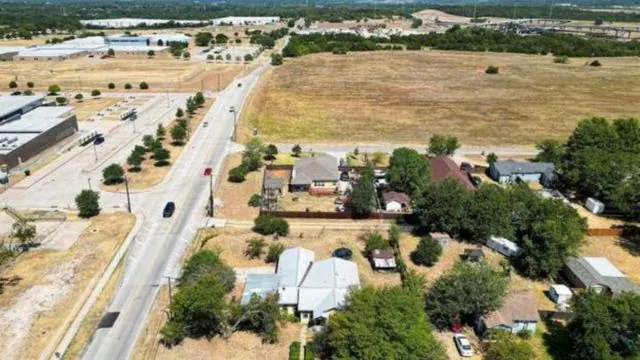Texas, known for its vast landscapes, vibrant cities, and undeniable confidence, represents a land of opportunity and prosperity. However, beyond the glitter of urban centers and the charm of small towns, there are areas facing difficulties. While the “Texas Miracle” attracts many, some communities find the dream elusive, replaced by the harsh reality of limited prospects and a lower quality of life. Today, we explore the darker side of the Lone Star State, revealing places where the Texan dream seems to have faded.
Defining the “Worst”: A Practical Approach
Before we start, it’s important to recognize the subjectivity in labeling a place as the “worst.” What might be a terrible living situation for one person may be tolerable for another. Priorities, values, and individual circumstances shape perceptions. Instead of pinpointing a singular “worst” place, we’ll look at several Texan communities facing significant challenges in various areas:
- Socioeconomic Factors: High poverty, unemployment, income inequality, and limited access to basic necessities present a grim daily life.
- Crime and Safety: Elevated crime rates, particularly violent crime, create fear and hinder community well-being.
- Education and Healthcare: Insufficient educational opportunities and restricted healthcare access limit upward mobility and overall health outcomes.
- Environmental Concerns: Pollution, lack of green spaces, and vulnerability to natural disasters significantly impact health and quality of life.
- Infrastructure and Amenities: Deteriorating infrastructure, limited public transportation, and a lack of recreational opportunities isolate and disadvantage communities.
Exploring Struggling Communities
With this framework in mind, let’s delve into some Texan communities facing challenges across these domains:
- Balch Springs (near Dallas): High poverty, low median household income, and a violent crime rate 70% above the national average create economic hardship, insecurity, and limited opportunities for residents.
- Raymondville (South Texas): As the poorest city in the state, with nearly half the population below the poverty line, limited job opportunities and low median household income perpetuate a cycle of disadvantage.
- Freeport (Gulf Coast): Reliance on petrochemical plants leads to pollution, high poverty, and economic vulnerability, impacting residents’ well-being.
- Eagle Pass (border town on the Rio Grande): High poverty, unemployment, limited healthcare access, and issues like drug trafficking and gang violence hinder growth and development.
- South Boulevard Park Row (Dallas): Despite being a neighborhood, it mirrors urban hardship with a high violent crime rate, rampant property crime, and challenges like poverty and failing infrastructure.
Seeking Solutions and Building Resilience
Labeling these communities as the “worst” is not meant to disparage residents but to shed light on systemic issues and advocate for solutions. Addressing these challenges requires a multi-pronged approach:
- Investing in economic development and job creation.
- Enhancing educational opportunities.
- Improving healthcare access.
- Tackling crime and violence.
- Upgrading infrastructure and amenities.
- Community engagement and empowerment.
Recognizing Resilience and Celebrating Strength
Despite hurdles, residents and organizations tirelessly work to improve their communities. From grassroots initiatives to dedicated educators, stories of everyday heroes illustrate hope and determination.
A Call to Action and Collective Responsibility
Unveiling the challenges in Texas is a call to action and a plea for empathy. Acknowledging these issues, understanding complexities, and investing in comprehensive solutions can bridge the gap between aspirations and realities. Achieving a truly inclusive and equitable Texas requires collective responsibility and an unwavering commitment to ensuring the Texan dream shines for all.

